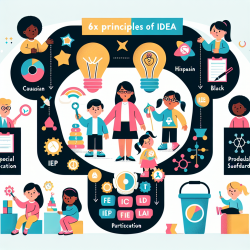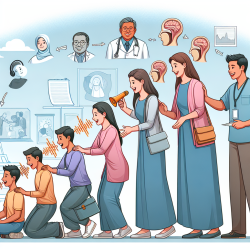Young people recovering from drug addiction face significant challenges when attempting to re-enter the workforce. These challenges often stem from a combination of factors such as disrupted education, lack of work experience, and co-occurring psychological disorders. However, recent research highlights the transformative potential of vocational evaluation and guidance in helping these individuals build successful careers.
The Importance of Vocational Evaluation
The research article "Vocational Evaluation and Vocational Guidance for Young People with a History of Drug Abuse" by A.M.H. Siu et al. underscores the critical role that vocational evaluation plays in understanding the strengths and limitations of young individuals recovering from substance abuse. This comprehensive assessment includes evaluating self-perception of abilities, work interests, readiness for work, and aptitudes.
By providing a detailed analysis of these areas, practitioners can help clients gain a clearer understanding of their capabilities and potential career paths. The study found that many participants were strong in jobs requiring quick decision-making and clerical tasks but needed improvement in fine manual dexterity and eye-hand-foot coordination.
Guidance for Practitioners
For practitioners working with young people in recovery, implementing a strength-based case management framework is essential. This approach focuses on identifying and leveraging clients' strengths rather than solely addressing their deficits. By doing so, practitioners can foster a sense of empowerment and motivation among their clients.
- Conduct Comprehensive Assessments: Utilize tools such as semi-structured interviews, self-completed questionnaires, and standardized aptitude tests to gather a holistic view of clients' abilities and interests.
- Provide Tailored Guidance: Present assessment results to clients in a way that encourages self-reflection and understanding. Discuss potential educational or vocational paths based on their strengths and interests.
- Offer Long-Term Support: Recognize that many clients will benefit from ongoing vocational counseling and coaching to help them make informed career choices and sustain employment.
The Impact of Career Guidance
The study highlights the positive outcomes associated with providing structured career guidance to young people recovering from drug abuse. Participants expressed appreciation for the detailed assessments and guidance sessions, which helped them explore new career possibilities they had not previously considered.
Career guidance sessions can help clients overcome barriers related to their educational background or history of substance abuse. By introducing them to various occupational groups and job markets, practitioners can expand their clients' understanding of potential career paths.
Encouraging Further Research
While the findings from this study are promising, there is still much to learn about effectively supporting young people in recovery through vocational evaluation and guidance. Practitioners are encouraged to engage in further research to refine assessment tools, develop innovative counseling strategies, and build stronger employer networks for job placements.
In conclusion, integrating vocational evaluation and guidance into rehabilitation services can significantly enhance the employability and career prospects of young people recovering from drug addiction. By focusing on clients' strengths and providing tailored support, practitioners can play a pivotal role in helping these individuals achieve meaningful employment outcomes.
To read the original research paper, please follow this link: Vocational evaluation and vocational guidance for young people with a history of drug abuse.










